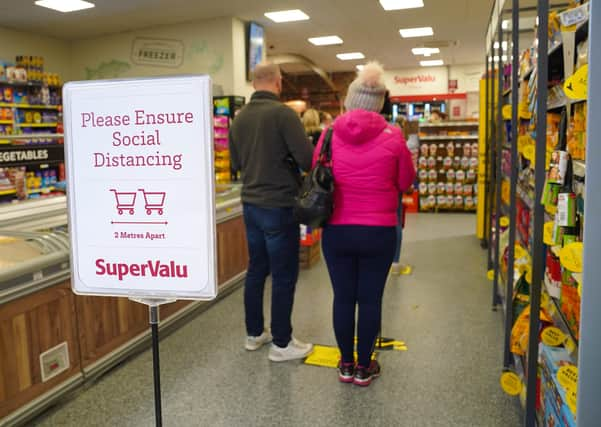Coronavirus: FULL LETTER – Belfast doctors plead with government for total lockdown as some people ‘fail to get gravity of the situation’


They have called for a “complete lockdown” because some people “are failing to understand the gravity of the current situation”.
However, whilst they are calling for stiff measures to enforce social distancing, it remains unclear – despite day and days of News Letter enquiries to the PSNI, Department of Justice, and Executive Office – what new powers (if any) the police are going to get to tackle offenders.
Advertisement
Hide AdAdvertisement
Hide AdAs of 1pm on Thursday, officers in England were given powers to enforce restrictions on movement in England with fines among other measures.
Those who ignore the tougher restrictions on movement could be hit with a £60 fine initially – reduced to £30 if paid within 14 days – and another for £120 for a second offence.
Those who do not pay could be taken to court and risk facing costs for unlimited fines.
Refusing to provide a name and address to avoid being given a fine is an arrestable offence.
Advertisement
Hide AdAdvertisement
Hide AdBut the News Letter’s questions on what power PSNI officers will have remain unanswered.
Here is the letter, in full, from the Belfast doctors:
We write as the four Chairs of the Belfast GP Federations to request a ‘complete lockdown’ of the public to manage the COVID -19 pandemic.
We are dismayed at the actions of many members of the public, who it seems to us, are failing to understand the gravity of the current situation in which we find ourselves.
COVID-19 is a disease, which is more infectious than seasonal influenza virus, is estimated to be carried asymptomatically or with mild symptoms in 60% of cases and has catastrophic effects in the short term for a large number of patients. There is no treatment and no cure other than supportive measures for patients when they are ill and until they can recover from the illness.
Advertisement
Hide AdAdvertisement
Hide AdThe fact that so many people can carry the virus with extremely limited effect to themselves means that whilst these individuals continue to move through the community, albeit in a limited fashion, they are still spreading the virus.
We see with alarm the effects of the illness in other countries, e.g. Italy, Spain, and China. Whilst circumstances cannot be directly compared with these other countries, we should be proceeding with extreme caution. We argue that it would be better to be extremely cautious and wrong than wrong and incautious.
The estimated time from exposure to null infectivity is estimated to be 2-3 weeks. It follows that if a ‘complete lockdown’ of the public was enacted, the virus could be, if not stopped in its tracks, at least significantly slowed up.
Time is of the essence in this disease with doubling of cases on average every 5 days if no measures are taken. We acknowledge the current advice government has given on social distancing but, in our view, this is not stringent enough.
Advertisement
Hide AdAdvertisement
Hide AdWe accept that the public find it difficult to understand the gravity of the condition at this stage as cases have few overt signs at the start and most cases with mild symptoms are currently managed by self-management in the community or if severe, in hospital and thus are largely ‘out of sight’.
It is very clear that a sizeable cohort of patients develop a profound shortage of oxygen very quickly in this disease and they need medical support, usually oxygen, for over 2 weeks on average. These patients can be managed in our healthcare system when there are limited numbers and sufficient resources.
Our concern is that, in the next few weeks, numbers will escalate significantly and anything which can be done to reduce spread of the virus in our Belfast communities, and indeed across Northern Ireland, should be adopted. This will protect the vulnerable, support staff and reduce morbidity and mortality.
Signed:
Dr Paul Loughrey,
Chair North Belfast GP Federation
Dr Ursula Mason,
Chair South Belfast GP Federation
Dr James Crothers,
Chair East Belfast GP Federation
Dr George O’Neill and Dr Joe Dugan,
Joint Chairs West Belfast GP Federation